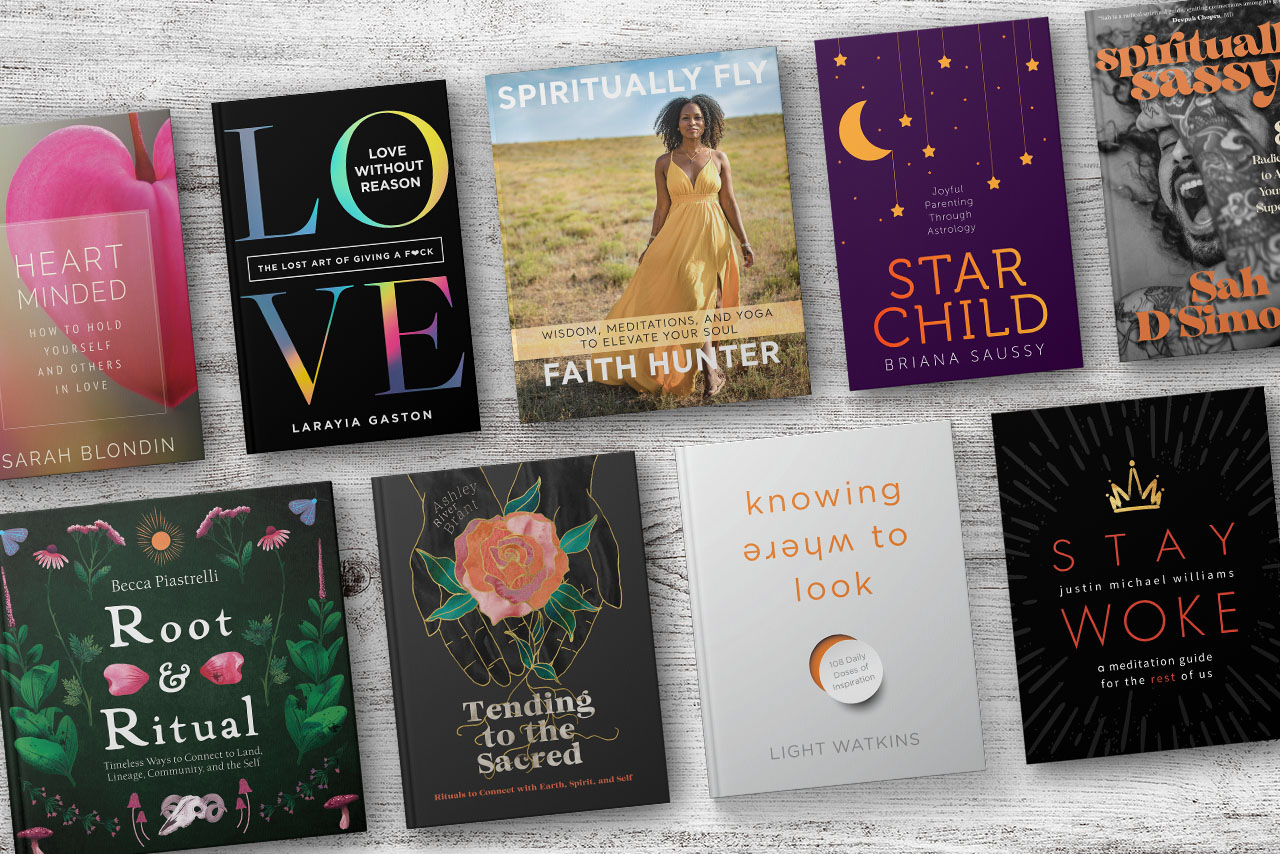
Hi friends! I’m sure many of you are already familiar with Sounds True. They offer books and programs to help us all live more genuine, loving, meaningful lives.
Through the years I’ve found some fantastic resources for personal growth and healing through their site, so I was happy to oblige when they asked me to introduce you all to nine new Sounds True authors in the spirituality and wellness space.
Justin Michael Williams, Sah D’Simone, Faith Hunter, and LaRayia Gaston bring meditation, music, dancing, and yoga to a broad audience, with a shared mission to reach underserved BIPOC and LGBTIQIA+ communities.
Ashley River Brant, Briana Saussy, and Becca Piastrelli invite us to integrate the sacred arts, earth wisdom, and ancestral medicine into everyday life.
Light Watkins and Sarah Blondin offer unique and engaging ways to integrate mindfulness into our spiritual practice.
Enjoy these short excerpts from nine books that will uplift and inspire!
—
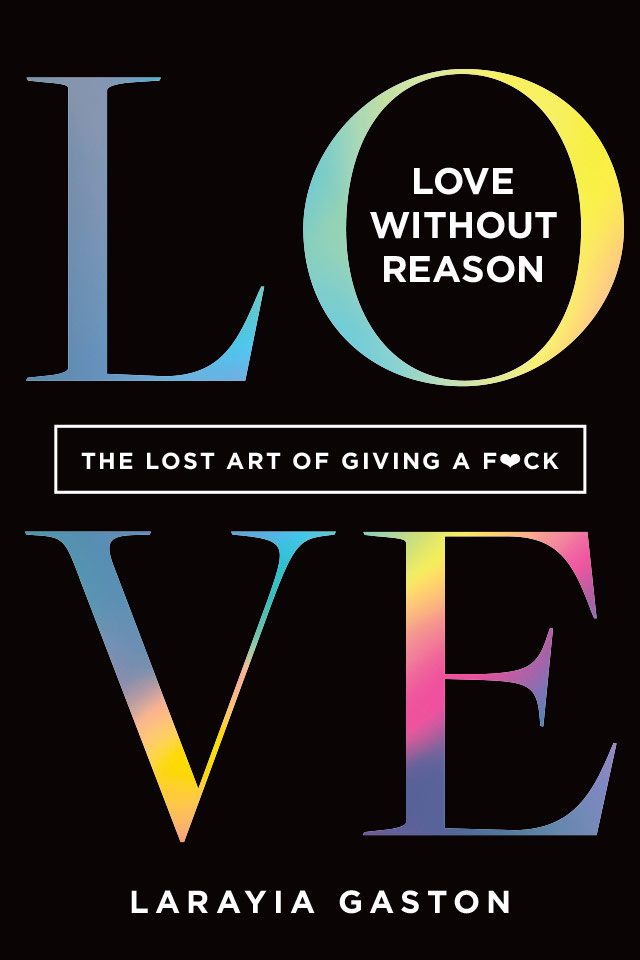 Always remember: even small gestures can have big impacts.
Always remember: even small gestures can have big impacts.
When you see someone who looks like she’s having a bad day, you can give her a smile or a kind word. When you see someone being mistreated or bullied, you can step in and redirect the conversation. When you see someone being ignored, you can acknowledge him and help him feel seen. When you see someone who could use a little help, you can offer your hand.
These are micro-gestures: simple, easy things that anyone can do. All you need is to be mindful of the people around you and set an intention to make a positive impact when and where you can. In many cases, you’ll see the difference you’ve made immediately. You’ll be able to tell by the look on someone’s face or the words of thanks they offer in return.
But even when that doesn’t happen, it’s important to keep in mind that the effort is worth it. It’s worth it for other people’s sake and it’s worth it for your own. You will always be able to look yourself in the mirror and say, “At least I tried.” Besides, we don’t always know in the moment the impact we’re having on people when we choose to give a f❤ck about them.
Excerpted from LOVE WITHOUT REASON: The Lost Art of Giving a F*ck, by LaRayia Gaston. Sounds True, March 2021. Reprinted with permission.
—
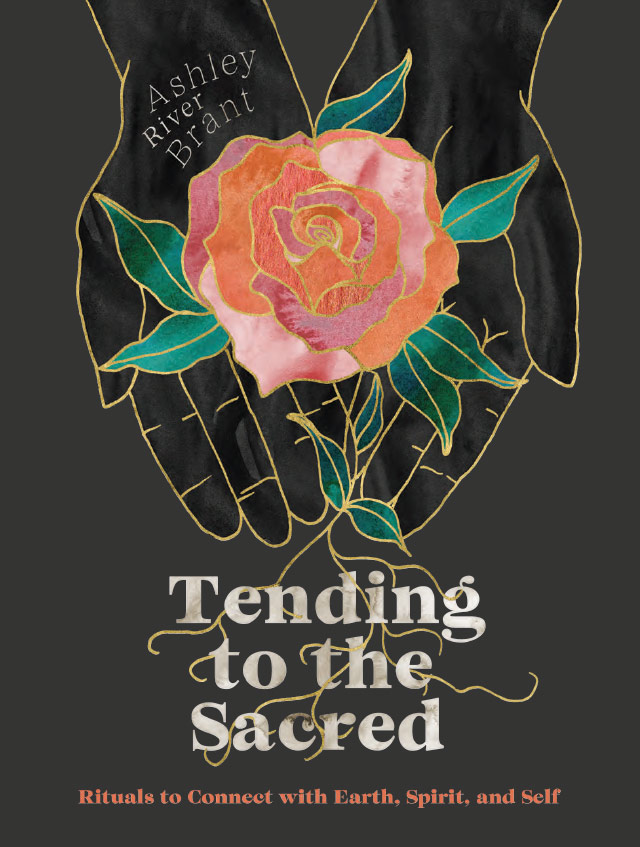 We practice rituals in our everyday life without even knowing that we’re doing so. Shaking a hand or hugging in greeting, sitting down for dinner with loved ones, washing our hands, taking our dogs for walks, making coffee in the morning, and even saying good night to a family member each night. But the loss of the Sacred and disconnect from our hearts has turned ritual into a mindless routine.
We practice rituals in our everyday life without even knowing that we’re doing so. Shaking a hand or hugging in greeting, sitting down for dinner with loved ones, washing our hands, taking our dogs for walks, making coffee in the morning, and even saying good night to a family member each night. But the loss of the Sacred and disconnect from our hearts has turned ritual into a mindless routine.
Making our coffee in the morning turns into a moment to worry about all our daily to dos. Weddings—a sacred rite and celebration of loving union between two beings—become stressful events. Meals become grab-and-gos from one place to the next, or are eaten while multitasking or on our phones.
In contrast, mindful ritual offers the structure we crave in a sacred and healing way that allows inner security, stability, and peace to flow effortlessly in grace as the world turns and life changes before our eyes with each passing season.
It’s important to remember that our bodies are not machines designed to move throughout our lives in a linear way. We are multidimensional, organic energy here to empower ourselves to cocreate with the universe and embody the love that we all are.
With noisy and often chaotic modern lives filled with stressors that take us away from this essence of truth, rituals can remind us of the trust and sacred agreement between ourselves, the Earth, and Spirit.
You can think of ritual as spiritual nourishment for the soul. Ritual helps us find inner harmony and perspective, it connects us back to what is true, and it brings us to a sacred space of peace within, beyond the stresses and worries of everyday reality. It enriches our lives, fosters our own inner healer and authority, and ignites an ancient fire within: a spiritual fire that has always been there, carried forward generation after generation and lifetime after lifetime as a desire to connect to something greater—something sacred.
Excerpted from TENDING TO THE SACRED: Rituals to Connect with Earth, Spirit, and Self, by Ashley River Brant. Sounds True, June 2021. Reprinted with permission.
—
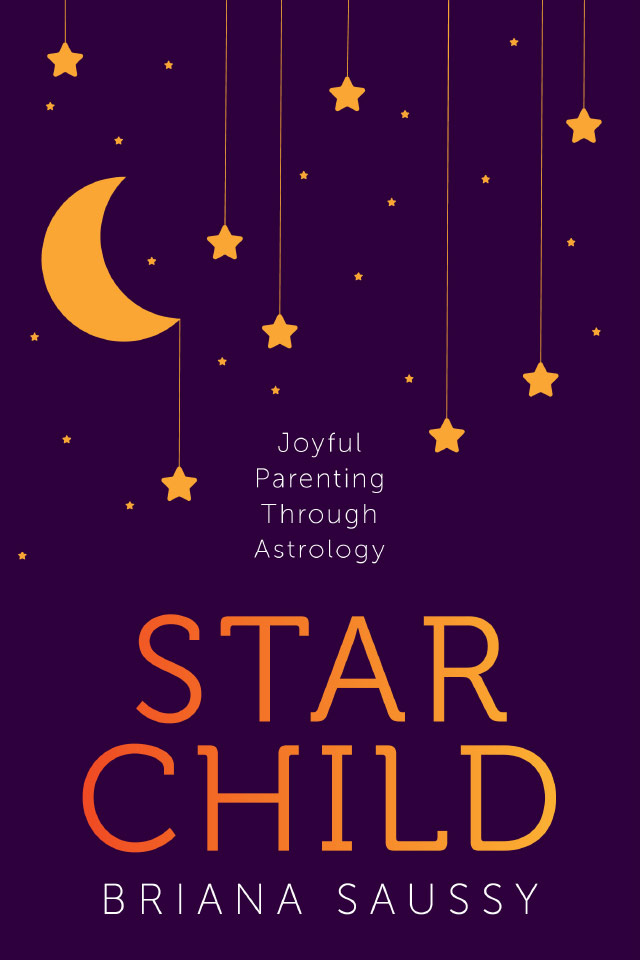 Children raised in recognition of their goodness grow into good adults. I have been blessed to meet them from every conceivable walk of life, of every skin color and culture. I stand strong in the knowledge that we who recognize and foster the good in ourselves and others far outnumber the unkind, the cruel, and the heartless.
Children raised in recognition of their goodness grow into good adults. I have been blessed to meet them from every conceivable walk of life, of every skin color and culture. I stand strong in the knowledge that we who recognize and foster the good in ourselves and others far outnumber the unkind, the cruel, and the heartless.
What can we do to nurture and call out that goodness in our children? There are so many ways, but among them I see a theme, a red lifeline leading out of the labyrinth: to see our children, to really see them, not as we would have them be nor expect nor desire them to be, but as they, in and of themselves, are. To see their natures, likes, dislikes, passions, and preferences and to know that between the hair-pulling and tattle-telling and driving us to drop into bed dead with exhaustion at the end of the day, they will grow and change and reveal marvel after marvel.
This is why I love looking to the birth chart, that one-of-a-kind heavenly star map, when I seek to understand and better relate to a child. The stars and Planets and the stories they tell are each unique. They are decidedly not my story, but the story line of the child, their path, a celebration of their particular gifts and knowings.
Stars, Moon, Sun, Planets: they are all luminous bodies, all shining light that reveals what needs to be seen, revealing a whole child with many stories and many adventures awaiting. When we see that child clearly, then possibility opens and we have done something truly good.
Excerpted from STAR CHILD: Joyful Parenting Through Astrology, by Briana Saussy. Sounds True, July 2021. Reprinted with permission.
—
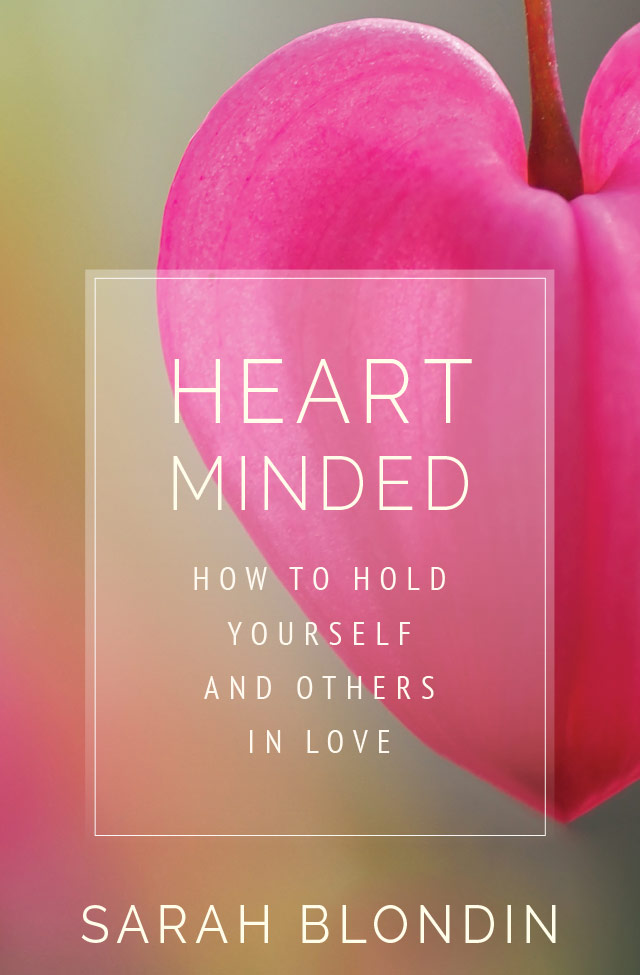 In order to be heart minded, we need to bring the heart and mind into harmony and partnership with one another. For this to happen, we have to train the mind not to fear and close off from the heart, and instead, serve our heart and implement its wishes.
In order to be heart minded, we need to bring the heart and mind into harmony and partnership with one another. For this to happen, we have to train the mind not to fear and close off from the heart, and instead, serve our heart and implement its wishes.
In order to do this, we have to undo our mind’s association of feelings of the heart with hurt and harm. In situations that would ordinarily have us retreat or retaliate, we need to remain conscious of what’s happening and choose to soften and lean into our heart’s center.
Each time we practice this softening, we send a new message to the mind that signals that we are safe, willing, and wanting to live in this more open, more sensitive way.
Over time, if we are resolute in our intention to step into our heart, our mind will become less rigid in its defenses against feelings and tenderness, and gradually we will become more heart centered.
Remember, we are not trying to pit the heart and mind against one another; we are trying to marry their aptitudes.
Perhaps it would help to spell out how I see their differences:
The mind attaches; the heart lets go.
The mind operates out of fear and distrust; the heart operates on faith and ease.
The mind is frantic in its functioning; the heart is slow, deliberate, and peaceful.
The mind thrives on and enjoys problem seeking and solving; the heart thrives on acceptance of all things and labels nothing as “wrong” or “right.”
Excerpted from HEART MINDED: How to Hold Yourself and Others in Love, by Sarah Blondin. Sounds True, June 2020. Reprinted with permission.
—
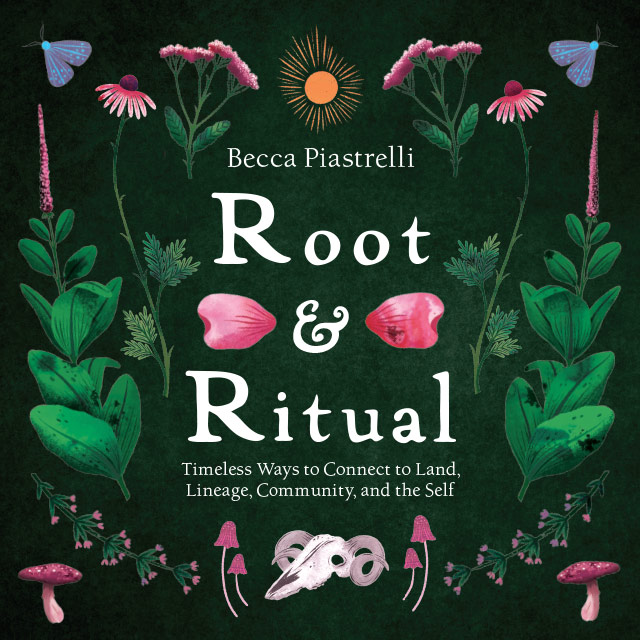 We’re not built for the way things are today. While technology and modern life have evolved at a breakneck pace, from a genetic perspective, humans are largely the same creatures we were thousands of years ago.
We’re not built for the way things are today. While technology and modern life have evolved at a breakneck pace, from a genetic perspective, humans are largely the same creatures we were thousands of years ago.
Our bodies are still seduced by the rhythms of the land. Our hearts quietly plea for the village to support us through life’s rites of passage. Our spirits dance at the thought of circling around the hearth fires and telling our stories. Everything within us longs to know our place in the world. And yet, most of us are getting none of that. We are deprived.
Like our ancestors, we wither without a tangible sense of intimate connection. In this time, where we supposedly have every option for connection and growth at our fingertips, we are still seeking that intangible something that is clearly missing in our lives.
Like our ancestors, we wither without a tangible sense of intimate connection.
We feel unrooted and disconnected from the land that is our home.
We feel untethered from our long line of ancestors and our deep human history.
We lack strong, healthy communities that support us and hold us accountable. And we find ourselves grasping and searching for our deepest sense of ourselves.
When we unsubscribe from this restless and individualist approach to life that we’ve been steeped in and instead learn to infuse our days with ancestral wisdom, we gain a truer sense of who we are and, more important, a powerful sense of belonging.
Excerpted from ROOT AND RITUAL: Timeless Ways to Connect to Land, Lineage, Community, and the Self, by Becca Piastrelli. Sounds True, November 2021. Reprinted with permission.
—
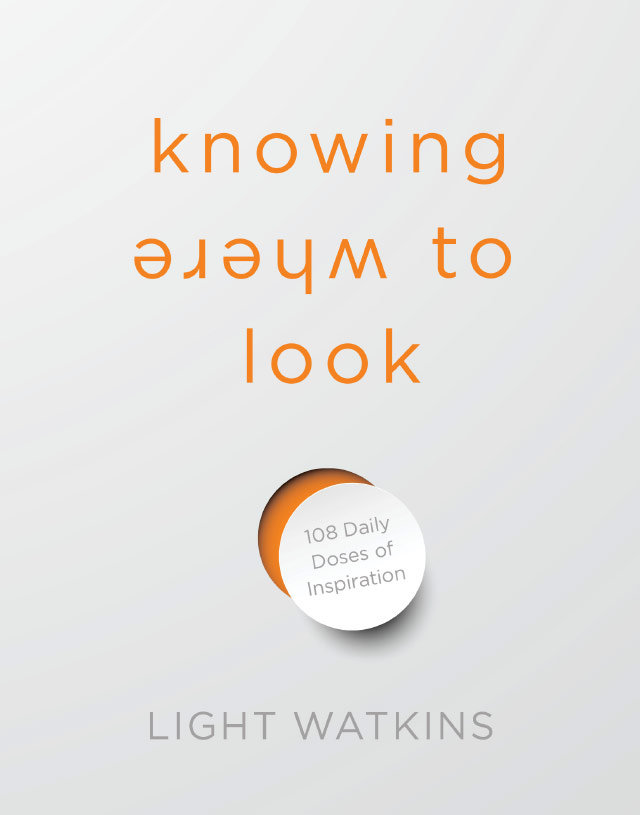 Before You Feel Ready
Before You Feel Ready
I can’t remember doing anything in life that I’ve felt fully prepared to do before I attempted it—
not writing books, not teaching meditation classes, not running retreats, not asking someone out on a date, nothing.
The confidence doesn’t usually come until much later—after trying the thing a few times, and
maybe falling down once or twice. Then you get some experience under your belt, learn from your mistakes, and eventually start to feel more prepared.
I know I’m not the only one who’s been afraid to start. And in case you’re feeling that way now, I’ll share my little “secret” with you: the final step for getting ready is to leap into action before you feel 100% ready. In other words, stop thinking about it and just go for it.
The most useful lessons won’t happen until after you leap and begin fumbling your way through the initial stages. And since you have no idea which mistakes you’ll make, you may as well get on with it so you can start learning from them and building your confidence in the process . . . BEFORE YOU FEEL READY
Excerpted from KNOWING WHERE TO LOOK: 108 Daily Doses of Inspiration, by Light Watkins. Sounds True, May 2021. Reprinted with permission.
—
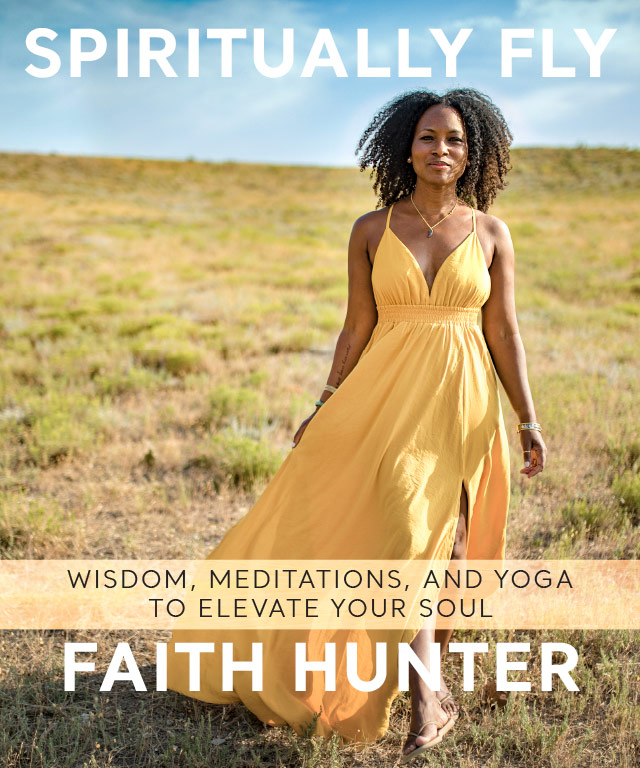 FORGIVENESS IS MY TEACHER, LOVE IS MY GURU
FORGIVENESS IS MY TEACHER, LOVE IS MY GURU
After trauma, we naturally shield ourselves from future harm, and our fight-or-flight response kicks in when we’re triggered. When the wall goes up, the emotional poison seeps deep into the subconscious, and this makes it challenging to fully love yourself.
Forgiveness doesn’t mean you will forget. It only means you have the power to release the anger, resentment, and frustration associated with a traumatic situation.
There’s an interesting intersection between stress, psychological health, and forgiveness. When you forgive, you naturally feel less stress when you recall a difficult situation, and overall your symptoms of depression and anxiety are greatly reduced. Forgiveness is the greatest gift you can give yourself. By acknowledging what happened and letting go of shame, you open a doorway to self-compassion and kindness.
The struggle we have with forgiveness is heavily saturated with the push-and-pull dynamics of disappointment. We hate ourselves for missteps and beat ourselves up even in moments of innocence. We are also plagued with the artificial safety of playing the victim or viewing ourselves as weak.
Real talk: it’s extremely challenging to forgive in the middle of pain, but when you’ve transitioned past the situation, free yourself and extend the hand of empathy. To shift, we have to fully commit to forgiving the person who caused harm and forgive ourselves. Once committed to the process, you can direct your focus on cleansing the energy surrounding the trauma, take responsibility for your part in the mess, and speak honestly to your spirit.
Excerpted from SPIRITUALLY FLY: Wisdom, Meditations, and Yoga to Elevate Your Soul, by Faith Hunter. Sounds True, August 2021. Reprinted with permission.
—
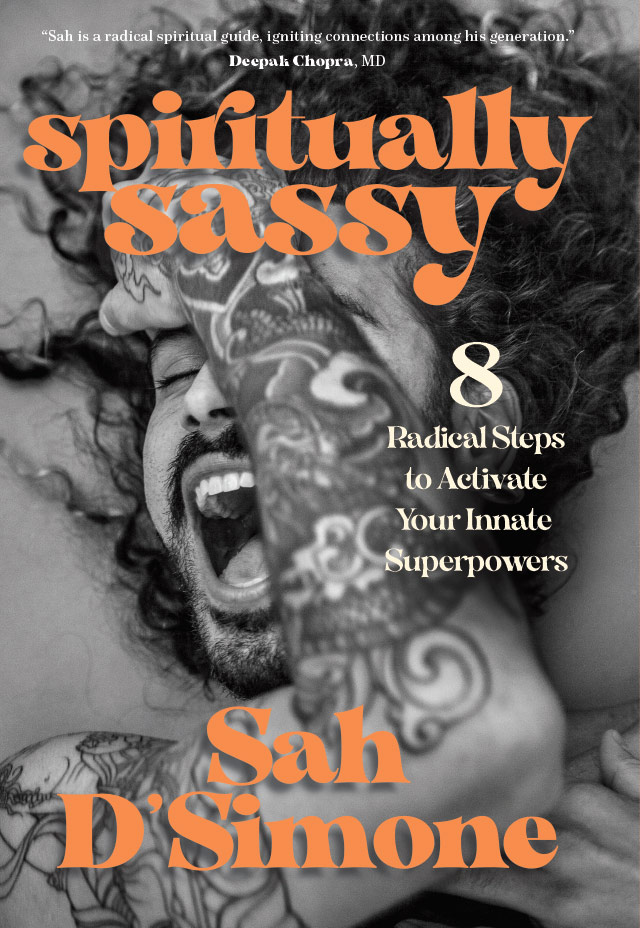
As you start to make progress and recognize your innate amazingness, the next step to uncovering more of your true essence is to let go of unintentionally running around like a thirsty animal that is never satisfied.
Catch yourself when you start to believe your happiness is dependent on your senses constantly being fed with only pleasant experiences. “I need to hear nice things!” “I need to taste nice things!” “I need to touch nice things!” “I need to smell nice things!” “I need to see nice things!” “I need to feel nice!”
If you are constantly craving and chasing the quick pleasure that comes from the senses you will never be satisfied. This is a classic form of suffering. When we constantly chase good feeling after good feeling, we never build a muscle for coping with the unpleasantness of life. But unpleasantness is a natural part of life—grief, pain, despair, sadness—that requires us to meet it with awareness, not by running away.
You will experience unpleasant sensations, and that is OK, in fact it is necessary. As a spiritually sassy warrior, you become empowered by your hardships. Your genuine happiness and your amazingness shines from your awakened heart and is not dependent on external factors.
When you catch yourself chasing sense gratification, remind yourself that genuine happiness does not come from the outside, a quick way to exercise your amazingness is by wishing that all people be free of insatiable cravings.
Excerpted from SPIRITUALLY SASSY: 8 Radical Steps to Activate Your Innate Superpowers, by Sah D’Simone. Sounds True, September 2020. Reprinted with permission.
—
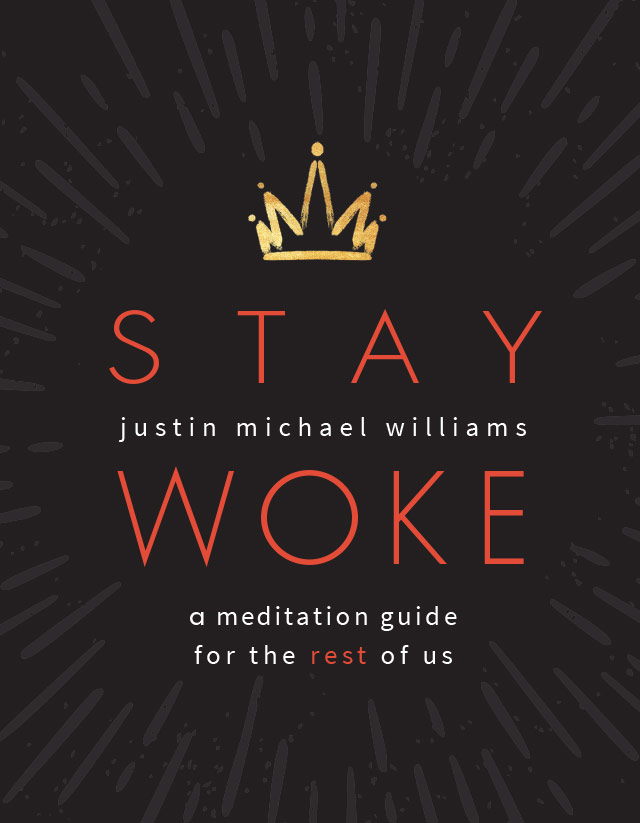 Many self-help gurus will tell you to get rid of your toxic thoughts by drowning them out with positive affirmations. I don’t know about you, but that sh*t never works for me. I can only repeat “I am beautiful” so many times in the mirror before I get bored.
Many self-help gurus will tell you to get rid of your toxic thoughts by drowning them out with positive affirmations. I don’t know about you, but that sh*t never works for me. I can only repeat “I am beautiful” so many times in the mirror before I get bored.
I believe we must turn toward our toxic thoughts instead of trying to drown them out. I know that might sound crazy, but follow me on this one. When a toxic voice comes up, you have a choice. You can let it berate you and become paralyzed in fear, or you can learn why you’ve held on to this voice in the first place. You don’t get rid of your toxic thoughts by sweeping them under the rug.
You get rid of them by healing them at the root and then taking brave action to prove them wrong. This gives us a chance to take responsibility instead of being defined by the story our minds have invented. Your toxic thoughts are here to teach you something. They are a marker. An indicator. A flag in the ground pointing toward your growth and healing. I know it’s not easy, but you must turn toward your toxic thoughts and listen to them with fierce self-compassion. That’s the only way they will ever stop running your life from the background.
Whenever you catch a toxic thought running wild in your mind, pause and ask this question: In what area of my life do I need additional healing, support, or growth? The answer to that question will give you a clue about where you need to invest additional time and energy to evolve beyond this toxic thought.
Excerpted from STAY WOKE: A Meditation Guide for the Rest of Us, by Justin Michael Williams. Sounds True, February 2020. Reprinted with permission.
About Lori Deschene
Lori Deschene is the founder of Tiny Buddha. She started the site after struggling with depression, bulimia, c-PTSD, and toxic shame so she could recycle her former pain into something useful and inspire others to do the same. You can find her books, including Tiny Buddha’s Gratitude Journal and Tiny Buddha’s Worry Journal, here and learn more about her eCourse, Recreate Your Life Story, if you’re ready to transform your life and become the person you want to be.
- Web |
- More Posts


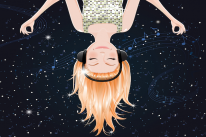
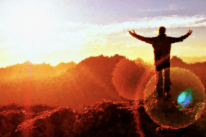









 Though I run this site, it is not mine. It's ours. It's not about me. It's about us. Your stories and your wisdom are just as meaningful as mine.
Though I run this site, it is not mine. It's ours. It's not about me. It's about us. Your stories and your wisdom are just as meaningful as mine.